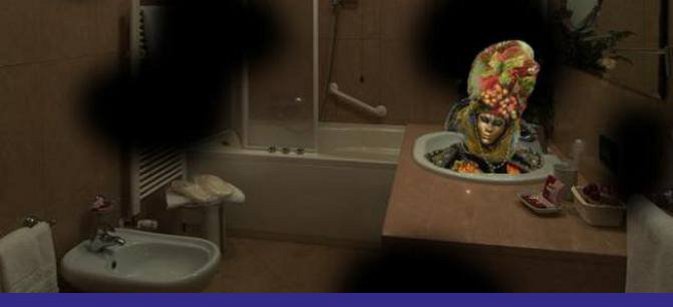CBS & macular degeneration
One of the most consistent findings of CBS in relation to eye disease is that macular degeneration poses a significant risk. This link is not unexpected given that macular degeneration is one of the leading causes of blindness in the Western world. Current estimates suggest somewhere between 20 - 40% of people living with macular degeneration will develop CBS and the figure is believed to jump to 60% in advanced cases.
Despite this strong correlation, precious few macular degeneration books (for the public) provide any coverage of CBS. Further, the syndrome is mentioned in only ~25% of contemporary ophthalmology text books. This suggests that crucial information is not reaching the general layperson but perhaps more concerningly, future health professionals. This unfortunate state of affairs serves only to reproduce the maxim 'out of sight, out of mind'.
The retina consists of rods and cones. The rods are specialised to assist with night or low light vision while cones have a dual role: they perceive colour and enable fine detail vision. In terms of the cones, as ARMD tends to lead to a loss in their numbers and their functionality, fine detail tasks such as handicrafts and reading become affected. Interestingly, among those living with advanced ARMD, almost 75% of their phantom images were coloured. Many tend to 'see' in a dominant colour (eg. purple) or in a limited colour range.
Dry and wet forms of macular degeneration
CBS risk applies to both the 'dry' and 'wet' forms of ARMD although as the wet form can affect vision far more dramatically, it represents a more acute risk.
The 'dry' form of macular degeneration is known as age-related macular degeneration (ARMD). It is a more slow moving form such that deterioration of the macula tends to be gradual. CBS symptoms can appear weeks, months and even years after the initial ARMD diagnosis.
The 'wet' form refers to where the blood vessels feeding the retina (a) start to abnormally sprout and branch out and can intrude into retinal layers and/or (b) burst and bleed into the eye. The leakage of blood into the retina needs to receive urgent attention as vision loss in this situation tends to be rapid. In this wet form of macular degeneration, CBS symptoms can appear much sooner.
There are several treatments for the wet form of macular degeneration, which aim to inhibit the growth of new blood vessels. These include medications called Avastin, Lucentis and Eylea.
It needs to be noted that Avastin - also known as Bevacizumab - has been occasionally reported to trigger CBS. There are several clinical papers that discuss this and can be supplied upon request.
Recently, two studies (2013, 2017) have suggested there may be an increased risk of CBS if someone living with the wet form of macular degeneration is also taking a certain form of heartburn medication. You can learn more here.
Recommendations
- Routine screening for, and forewarning of, CBS during the initial consultations with the eye specialist could prevent much needless suffering and anxiety.
- For those who may be already experiencing CBS symptoms, the valuable reassurance that can be provided by the eye specialist (ie. that they're not losing their mind) can put to rest genuine fears and doubts.
- For those yet to experience any signs of CBS, the doctor's forewarning can be readily drawn upon if something visually unusual occurs down the track.
- That eye specialists planning to treat the 'wet' form of ARMD with Avastin notify patients of the possible risks associated with the use of this procedure in order that an informed decision can be made.
- GPs and other health care professionals being alert to the above also. This can provide an additional layer of (clinical) support.
- Stress and anxiety can emerge from living with ARMD. Stress has also been found to be a risk factor for inducing or exacerbating CBS symptoms. Therefore, attempting to keep anxiety levels to a minimum is strongly recommended.
For more detailed information on macular degeneration visit: http://www.mdfoundation.com.au









